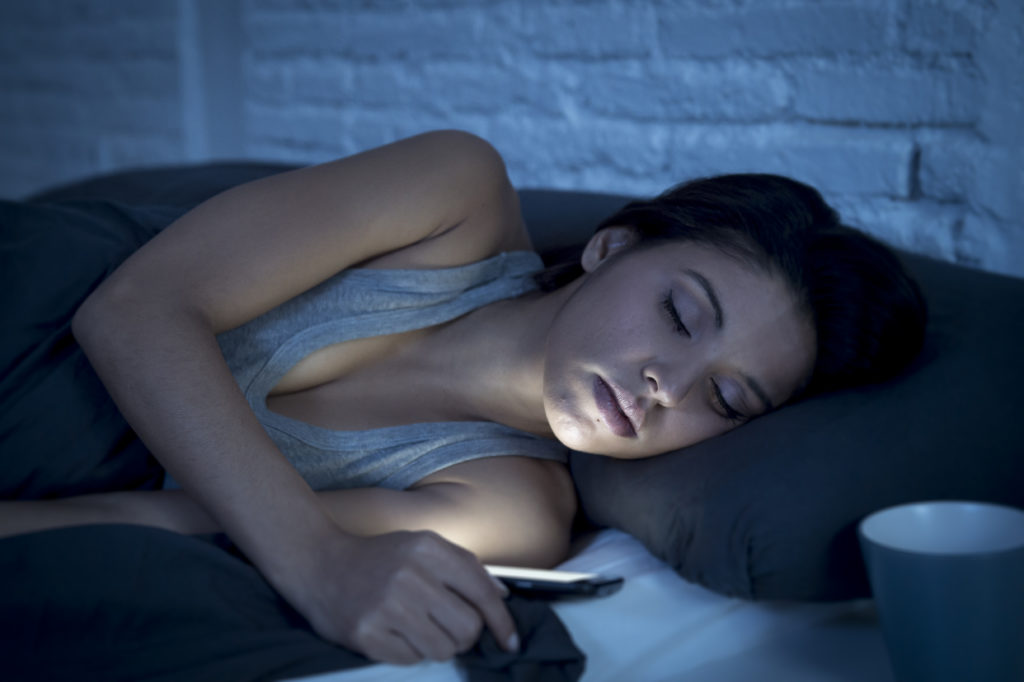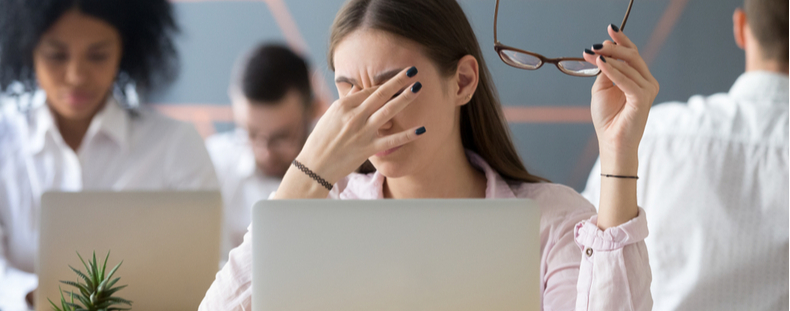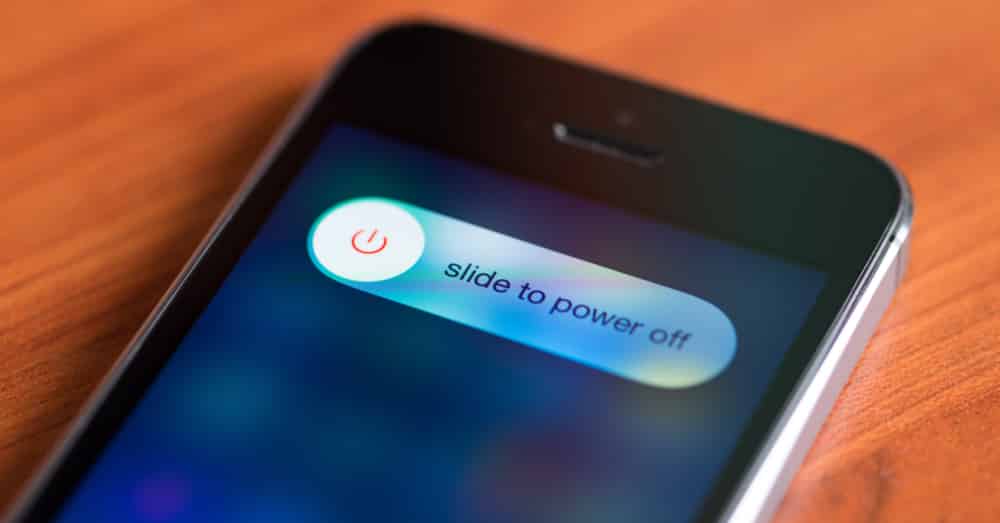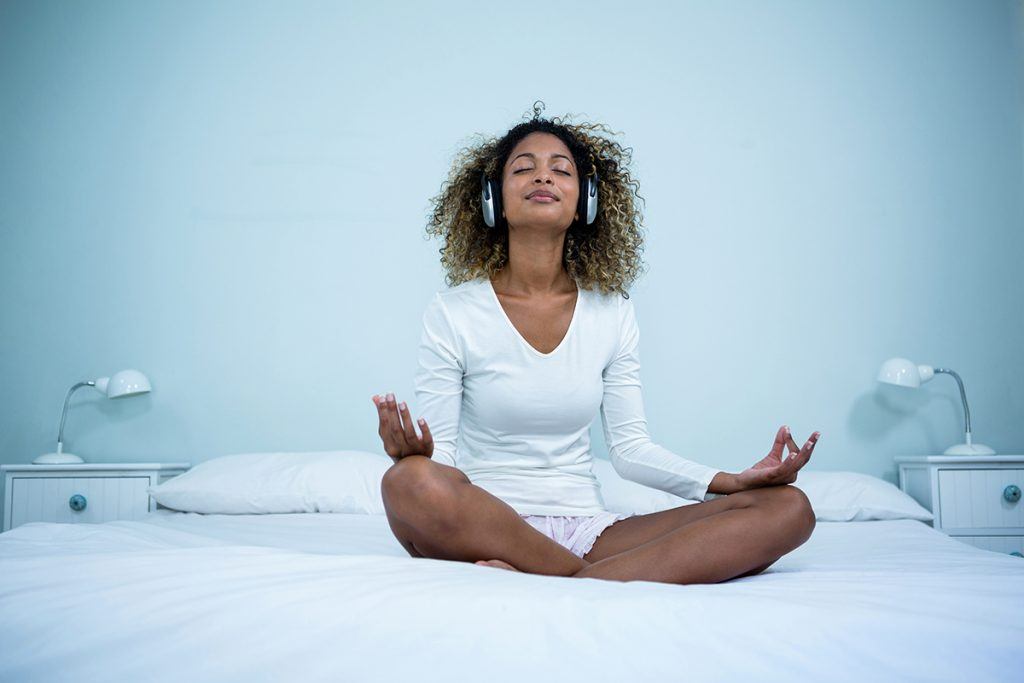You’re not alone if you binge your favorite TV show or scroll through your phone shortly before bedtime. According to the National Library of Medicine, 90% of Americans use screens within one hour before bed.
Unfortunately, multiple aspects of screen use at night can hinder sleep, leading to daytime fatigue, mood problems and trouble focusing. Read on to learn more about why screens negatively impact sleep and what you should do if you want to sleep better.
Screen Time Before Bed
Whether you watch TV or spend time on your phone, computer or tablet, indulging in screen time before you go to sleep may make it harder to fall asleep and sleep soundly.
But how long before bed should you avoid watching screens?
There is no simple rule when it comes to what time you should switch off your devices. Research suggests that eliminating phones and other electronics even 30 minutes before bed can make a difference, but the longer you hold off, the greater the sleep benefits. A general guideline is to avoid screens an hour before bedtime, balancing benefits with the ease of follow-through.
And if you want to eliminate the negative effect of screens on sleep, you should consider reducing your overall screen time in the evenings, not just right before bed.

According to researchers from France, two hours of screen time in the evening “increased the risk of insomnia, non refreshing sleep, and affected daytime function” in adolescents.
The conclusion? Using screens in the evening may harm sleep quality, with more significant impacts the later and longer you do so.
How Does Screen Time Disturb Our Sleep
Why are screens so bad for our sleep?
One reason is blue light exposure. Blue light is a spectrum of light that increases wakefulness by influencing our internal clock, also known as our circadian rhythm. Blue light delays the circadian rhythm, making it difficult to fall asleep while also shortening sleep duration. You receive blue light from the sun, various artificial lights and screens.
Another reason that screens at night negatively impact sleep quality is that they are mentally and physically stimulating. For instance:
- Video games release adrenaline that wakes you up.
- Emails and other work communications can cause stress or worry.
- Scrolling news or other feeds is addictive and hard to stop.
- Watching television is addictive and can create various states of alertness, such as excitement or fear.
The Links Between Nightly Screen Time and Sleep Quality
Blue Light Exposure
You likely know that blue light can make it hard to sleep. But what exactly is blue light, and where does it come from?
Blue light is a wavelength of light in the visible spectrum responsible for our ability to see blue. Our only natural source of blue light is the sun.
Today, with various forms of artificial light, you receive stimulating blue light waves from:
- Fluorescent lights
- LED lights
- Traditional incandescent light bulbs
- Screens
Screens receive so much attention when it comes to sleep challenges and conditions like insomnia because of the level of blue light emitted and how we use screens. Screens and LED light bulbs release more blue light than traditional light bulbs. And when we use screens, especially phones, we hold them closer to our eyes than the lights that light our homes.
Disrupts Our Sleep Cycle
Our bodies evolved to be alert during the day and sleepy and night, with sunlight signaling our internal biological clocks. When we experience sunlight, we become more alert. And when the light fades, so does our energy.
But what happens when the light doesn’t fade as we get closer to bedtime? The artificial light disrupts the natural sleep-wake cycle, making it hard to fall asleep when we should. If you find it hard to wind down, or toss and turn instead of easily falling asleep, excess light exposure too late in the day could be to blame.
Effects Melatonin Production
The method by which blue light disrupts our sleep-wake cycle is via melatonin production.
Melatonin is a hormone that our brains release to help regulate our sleep cycle. When light levels drop, our bodies release melatonin, inducing relaxation and promoting sleep.
When we use screens in the evening and at night, the light from them delays melatonin release. Delayed melatonin means you won’t be tired until later, which makes it difficult to fall asleep. In the morning, your melatonin stays elevated longer than without nighttime blue light exposure, leading to trouble waking up and feelings of excess fatigue throughout the day.
Disrupts Circadian Rhythm
Our sleep/wake cycle, also known as the body’s circadian rhythm, does more than influence when we feel alert and sleepy. Our internal body clocks control body temperature and hormone levels. All of these impacts influence our health as a whole.
When late-in-the-day blue light exposure impacts your circadian rhythm, the first thing you might notice is poor sleep and daytime fatigue. Over time, related health problems can emerge.

If you regularly get less than six to eight hours of sleep each night, research suggests you’re more likely to have heart problems. Other studies suggest links between poor sleep, circadian rhythm issues and conditions including depression and Alzheimer’s Disease.
What Should We Do With Our Devices?
Ideally, we would all stop using devices with screens when we got home from work or around dinnertime. But for most of us, that goal is not very realistic. Instead, consider the ways that you can reduce your use.
You might consider:
- Avoiding screens 30 minutes or an hour before you plan to sleep
- Using night mode or turning down the screen’s brightness a couple of hours before bedtime
- Turning your devices off and phone on Do Not Disturb when you sleep
- Limiting screen time to one hour in the evenings
Tips for Reducing Screen Time Before Bed
Turn Off Notifications
Simply having your phone near you when you sleep has been shown to increase daytime sleepiness and lead to sleep issues. Turning your phone to Do Not Disturb or Airplane mode is necessary before bedtime if you want to sleep soundly. Only by silencing notifications can you ensure that calls, texts or emails won’t wake you up and tempt you into checking your phone in the middle of the night.

And if your goal is to limit screen time before bed, it is a good idea to turn off notifications when you put screens away. A simple text notification may encourage you to unlock your phone and head to your favorite distraction.
Stick To the Same Schedule
Habit building is a helpful tool if you want to succeed with your goals long term, and this includes sleep hygiene. Habits are rituals that you tie to specific cues, making them easier to follow over time.
To help improve your sleep quality, try to have a sleep schedule where you go to bed and wake up close to the same time each day. Then, tie your screen use to that schedule. Maybe you want to start by not using screens an hour before bed. If you know that time is 9 p.m. each evening, you’re more likely to stick to your goal than if your bedtime changes daily.
Utilize Blue Light Filters
Today, many digital devices–including phones, computers, tablets and televisions–have internal blue light filters. Called “Night Mode” on Android devices and “Night Shift” on Apple products, these modes dial down the blue light on the screen to minimize the impact of blue light on sleep.
Try activating these filters two hours or more before your set bedtime. So long as these modes don’t bother you, it may be a good idea to start using them even earlier in the evening since evening screen use can hinder sleep quality.
Practice Alternative Pre-Sleep Activities
To help you succeed in your no-screens-before-bedtime goal, find an activity or two to replace your previous screen habit. You might read a book, listen to calming music, meditate or do a gentle yoga practice. When you have something specific to do, you are less likely to revert to your previous habits.

Final Thoughts
Using screens at night and during the evening does affect sleep. Both the duration of screen time and the proximity of screen use to bedtime influence how severely screens impact your sleep. Aim to stop using screens at least 30 minutes before bed, although longer is better. And if you want to sleep well, place your phone far from your bed and turn on Airplane mode or Do Not Disturb.
FAQs
How many hours before bed should you stop screentime?
Research suggests that even avoiding screens 30 minutes before bed can help you fall asleep faster and sleep better. However, longer is better. Experts and researchers often advise stopping screentime an hour or more before bed.
How do I reduce screen time before bed?
Set a time each night to stop using screens and have a plan for how you will spend this time. Turn your phone to Do Not Disturb or Airplane mode during this time and overnight to avoid unplanned screen time.
Does screen brightness affect sleep?
Screen brightness does affect sleep, thanks to blue light levels. The greater amount of blue light released, the more likely you will struggle with falling asleep. For better sleep, use blue light filters like night modes and turn down screen brightness a couple of hours before bedtime.


